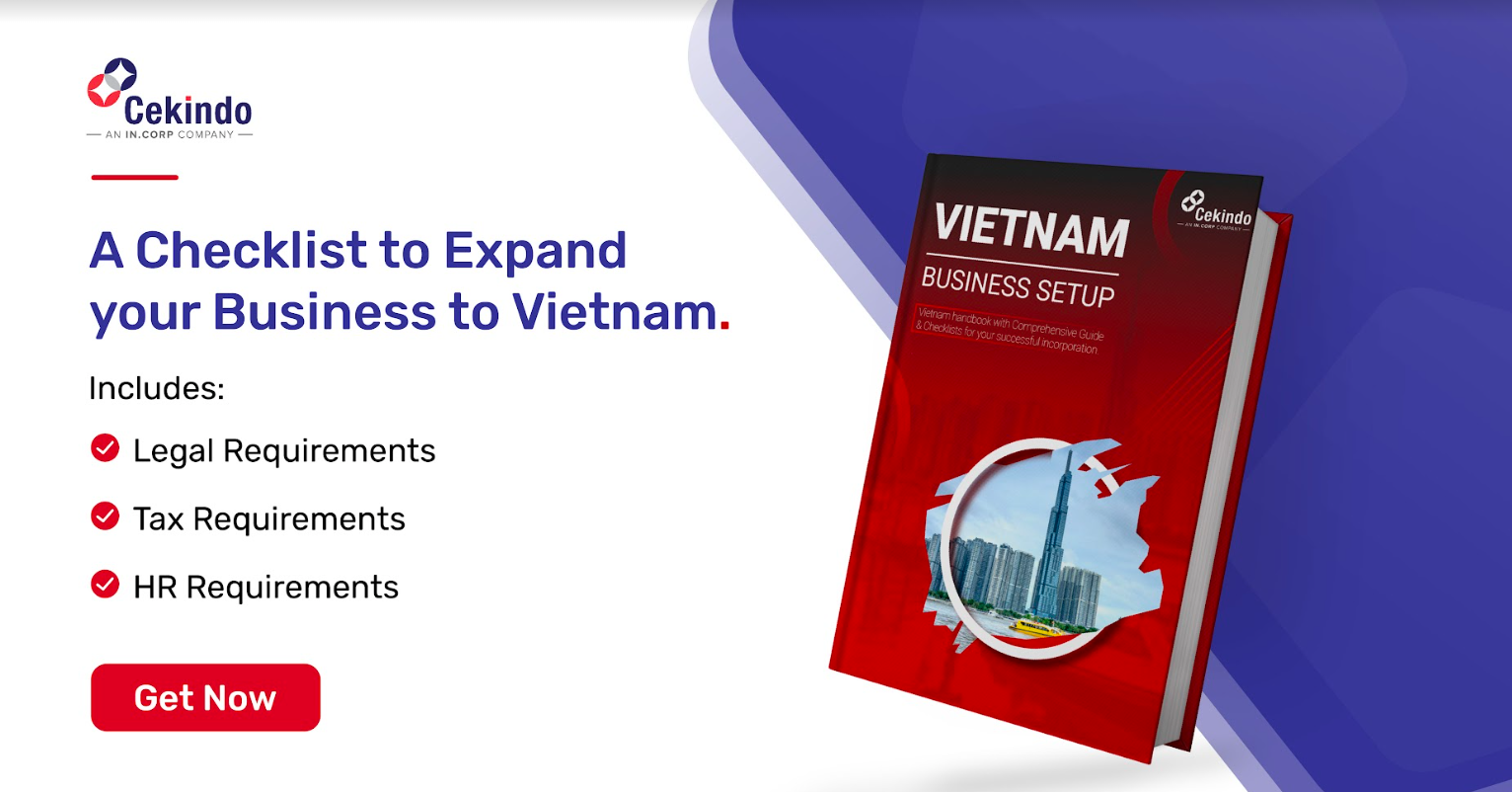Vietnam’s middle class is pivoting toward a contemporary consumer-driven lifestyle, providing an opportunity for foreign investors to enter Vietnam’s evolving market. It is imperative that foreign firms plan strategically while setting up their business in the country.
In this article, we will talk about how foreign investors can make the best of Vietnam’s lucrative market through a comprehensive guide to market entry and business setup in Vietnam.
See Cekindo’s Company Registration Services in Vietnam
Investing in Vietnam: Market Research and Due Diligence
Vietnam has a population of 98 million consumers across 27 million households. But it is far from one market, different segments manifest in geographies, needs, beliefs, brand use and income segments. Understanding whom you consumer target it, their current habits and beliefs is critical to successfully launching a new product or service in Vietnam. Market research will assist you to identify the consumers whom you should be targeting. That is consumer segments which offer a commercially viable size in terms of both volume and expenditure and ‘where’ your business and brand can win.
Richard Burrage – Cimigo.com
To enter the Vietnamese securely, a new foreign entity must conduct thorough due diligence on the potential market entry firm to verify that they have the necessary permissions, facilities, staff, and money. Get in touch with our team of legal experts and we will help you get set up with the best market research partners in Vietnam.
Choose an Entity to Incorporate:
Firms wanting a direct presence in Vietnam should consider the following options: a representative office license, a branch license, and, finally, a foreign investment project license, all of which are available under the country’s updated Foreign Investment Law.
100% foreign-owned enterprise
In Vietnam, 100 % of foreign-owned businesses can operate under one of the following structures:
- Joint-stock companies;
- Limited Liability Companies;
- Branch Offices.
- Representative Office
Compare Company Registration Options
Due to their lower liability and capital requirements, limited liability companies (LLC) are the most popular form of foreign investment in Vietnam. You have the choice of single-member LLCs with one owner, as well as multiple-member LLCs which can have numerous owners. Depending on the needs of a certain investment, these owners might be individuals or corporations.
Branch offices, which are established based on the current presence of the company in the country of origin, have relatively high capital requirements and are best suited for investors wanting to list on a Vietnamese market.
RELATED: Guide to Corporate Secretarial & Compliance Services in Vietnam
Where to do business in Vietnam
Depending on the industry, foreign companies entering the Vietnamese market may need to consider two market strategies: one to target the northern part of the country, which has a greater proportion of government ministries and regulatory agencies, and the other to target the southern part of the country, which is the prominent business hub of the country as well as being a more multinational metropolis. Consumer behavior and tastes differ widely in the two marketplaces, with Hanoi being much more conservative than its fast-moving westernized southern counterpart.
Free Trade Zones to Consider
Investing in Vietnam’s free trade industrial zones is an ideal route for foreign investors (who want to set up production and sell their products internationally) to take advantage of a variety of government incentives and investment benefits. Investors from all over the globe have been attracted by the fiscal incentives, which include a 10% CIT payment for 15 years, a 50% tax reduction on personal income, and tariff reductions on products across ASEAN regions. The following are some of Vietnam’s prominent Free Trade Zones, which are among the country’s 250 industrial zones:
- Northern Vietnam Key Economic Region (NVKER)
- Southern Key Economic Zone (SKEZ)
- Central Vietnam Key Economic Region (CVKER)
- Mekong River Delta Economic Zone (MeKEZ)
We made the most detailed step-by-step guide to setting up a business in Vietnam for investors, now available as an interactive checklist:
Know how to hire staff in Vietnam
The next step in the market strategy for investing in Vietnam is to hire employees, which is not easy as Vietnam has a very high turnover rate, 24% according to staffingindustry.com, the optimal rate being 10%. The following techniques have been devised to assist firms in gaining a better understanding of staffing in Vietnam:
- Hiring Talents: When it comes to doing business in Vietnam, having the right people is essential for seamless operations and upkeep. To attract the finest applicants, a company must provide greater, yet competitive, compensation, stronger incentives, and top-notch employee perks.
- Professional Employer Organization (PEO): Partnering with a PEO can help you save money by lowering your overhead expenditures. All of your talent recruiting, human resources, payroll, and administrative activities may be handled by PEO.
- Background Check on Employees: To stay on top of regulatory compliances, minimize fraud, and get a deeper understanding of an employee’s past work history, employers must do background checks on their personnel.
How Can Cekindo Help?
In Vietnam, forming a business entails a series of time-consuming and various formal procedures. Having business registration specialists on your side, such as Cekindo, saves you a lot of time and ensures a stress-free process. Cekindo offers a wide range of auxiliary services connected to business formation, including legal advice, license and document acquisition, tax and accounting, and human resource services.
Let’s get started by completing the form below and speaking with one of our experienced counselors.

